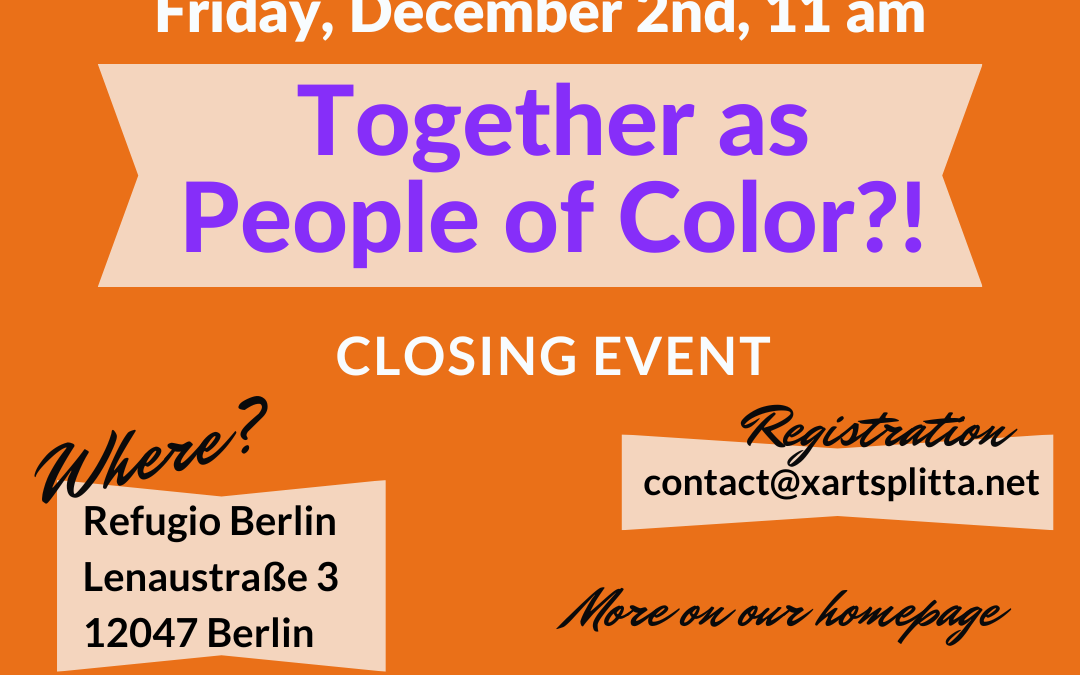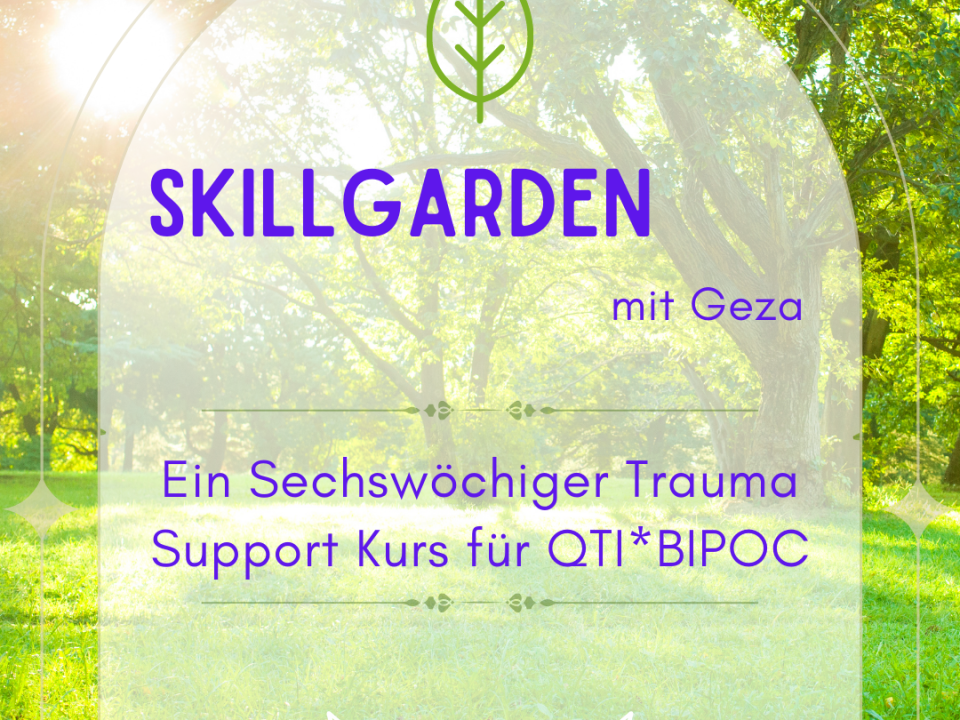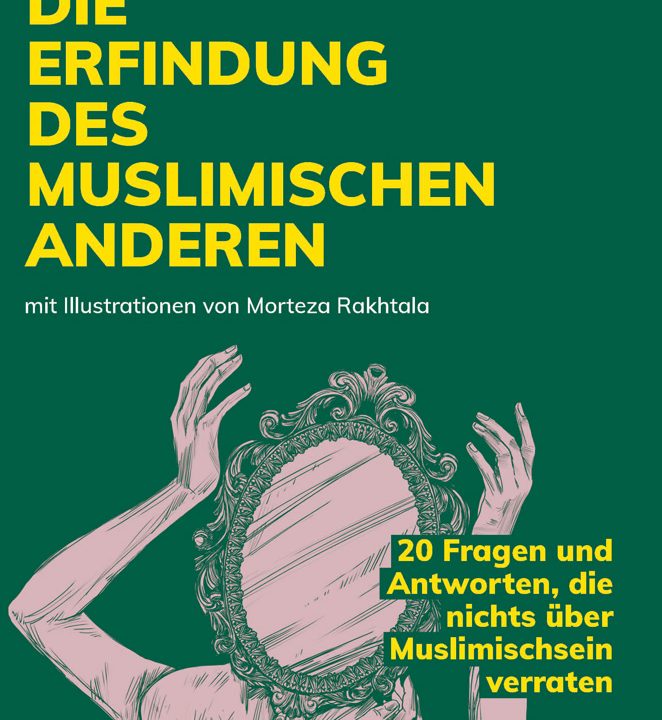Update xart splitta zum Genderstern und Genderdoppeltpunkt
02.02.2022
Zusammen als People of Color?!
08.11.2022
Friday, December 2nd, 11 am
Refugio Berlin, Lenaustraße 3, 12047 Berlin
This event will take place in-presence. In German and English spoken language, as well as German sign language with interpretation.
We would like to warmly invite our BIPoC Communities to our years final event of #CommunitiesSolidarischDenken!
On Friday, December 2nd, we would like to create a space together in which we share solidarities. This year those will be related to self-identifications or more specifically the term “People of Color.”
“People of Color” was coined in the 1960s Black Power movement in the U.S. and was meant to bring people negatively affected by racism together, united against these experiences of discrimination and to position themselves in opposition to whiteness.
On Monday, October 31st we were able to realise the event “People of Color: A conversation about the history of solidarities”. At this event we talked about the history of BIPoC in the 90s and 2000s as well as the political developments and questions that arised with its arrival in Germany.
In the course of our final event on December 2nd, we would like to bring together the conversations from our focus groups, community processes and events. In the form of keynotes, panels, as well as our Kitchen Tables, we will together share our current debates on the People of Color term.
We are also looking forward to publishing our freshly printed brochure with contributions from our communities on their meaning and use of the term People of Color.
Let’s come together, sum up and discuss, share and learn from each other and build new solidarities as well as strengthen old ones.
Program
11.00 am Registration
11.30 am Welcome
12.00 pm Keynote “Intersectionality in sign language communities” with Asha Rajashekhar
1.45 pm Kitchen Tables a.o. with Sun-Ju Choi, Saboura Naqshband, Abilaschan Balamuraley und Asha Rajashekhar
3.30pm Kitchen Table Panel with Maisha Auma, Abilaschan Balamuraley
5.30pm Performance Comedy with Lux Venéra (english spoken language)
6.00h The End
Everything will take place in German sign and spoken language and is translated (ENG/ GER spoken language, DGS). The Kitchen Tables are not translated into English spoken language and will take place in German sign language and spoken language.
The Kitchen Tables
The program point “Kitchen Tables” will be spaces of exchange that so many of us BIPoCs know quite well – conversations at the kitchen table. At three kitchen tables, discussion partners will be in conversations about different topics that our BIPoC communities are dealing with around the PoC term. As participants, you can sit by, be there, or even join in.
1) People of Color – then, now, everywhere? – Sun-Ju Choi, Maureen Maisha Auma and Saideh Saadat-Lendle
Along with Maisha, Saideh, and Sun-Ju, People of Color is seen as a moment of politicization. What does self-designation mean in this context and how do we need to define this? How much movement and flexibility does People-of-Color entail and how much does it require? All three have been activists for many years and look forward to an exchange that includes both geographic and temporal connections.
2) Critical PoC Perspectives, (South)Asian Being, and Colorism – Abilaschan Balamuraley, Saboura Naqshband and Methu Thavarasa
In this Kitchen Table, Abilaschan, Methu and Saboura would like to open a space for the following questions: To what extent does colorism impact the debate around “people of color” and self-designations? How do (pre- and post-)colonial constructs such as caste, colorism, and anti-Blackness prevent solidarities among “PoC”? What might a critical and solidaristic perspective on (South) Asian-ness and PoC-ness in Germany look like?
3) Disability(ies)? People of Color? People of Color with Disability(ies)! – Asha Rajashekhar and tba
There will be an exchange with Asha on exclusions of BIPoCs through ableism, locating oneself in dominant white communities, resistance, and more needed solidarities.
Registration:
Pls. register at contact@xartsplitta.net! Registrations by writing, video and audio are possible.
This event is explicitly addressing self-identification of people affected by racism, so we are very interested why you would like to participate.
When registering, please answer the following questions:
- In what way have you previously dealt with the topic so far?
- Which Kitchen Table would you like to participate in?
- How do you situate/position yourself within this discussion?
- Do you have needs or require support to participate (e.g. childcare or language assistance etc)?
The Panelists

Asha Rajashekhar born in Berlin with Indian roots. Being deaf, she grew up bilingual – German sign language and German written language. She works as a teacher and intercultural coordinator at the Elbschule Hamburg and as a representative for Schools at the Association for Deaf People Hamburg e.V.

Dr. Sun-Ju Choi is a cultural worker/activist and founding member of korientation, Netzwerk für Asiatisch-Deutsche Perspektiven e.V. and Neue deutsche Medienmacher*innen (NdM). She currently works as the deputy executive director of NdM and is on the board of korientation and neue deutsche organisationen.

Saideh Saadat-Lendle is a psychologist, activist, diversity trainer of the organisation “Eine Welt der Vielfalt e.V.” (A World of Diversity) and freelance lecturer on intersectionality, diversity, empowerment, anti-discrimination and anti-violence, racism, gender and LGBTIQ.
She founded the anti-discrimination and anti-violence department of Lesbenberatung Berlin e.V. – LesMigraS, a nationwide active inter- sectional anti-discrimination, anti- violence and empowerment project for lesbians, bisexuals, trans* and queer people, which specifically addresses people affected by multiple discriminations. Till end of 2020 she was the director of LesMigraS.

Prof. Dr. Maureen Maisha Auma is an educational scientist and gender researcher. April 2008 – October 2022 she was a Professor of Childhood and Difference (Diversity Studies) at the University of Magdeburg-Stendal. Between 2014-2019, she was a guest professor at the Humboldt University-Berlins Center for Transdisciplinary Gender Studies and at the Institute for Educational Sciences. 2021-2022 she was Audre Lorde guest Professor of Intersectional Diversity Studies of the Diversity and Gender Equality Network, Berlin University Alliance (BUA), at TU Berlin. Currently she is a guest professor for intersectional diversity research at the Centre for Interdisciplinary Women’s and Gender Studies at TU Berlin.
Her research focuses on diversity in educational materials in East and West Germany, sexual empowerment for Black people and People-of-Color in Germany, critical whiteness studies, anti-Blackness, childhood studies, intersectionality in the context of critical race theory and racism critique. She has been active in the Black feminist self-organisation Generation Adefra, Black Women in Germany since 1993. Together with Peggy Piesche and Katja Kinder, she was part of the academic team Diversifying Matters, a specialist group of Generation Adefra, which carried out the Berlin consultation process “Making the situation of discrimination and social resilience of people of African heritage in Berlin visible” in 2018. Building on this, she drew up a catalogue of actions for the equality of Afrodiasporic people and the dismantling of anti-Black racism, also commissioned by the Berlin Senate in 2021.

Abilaschan Balamuraley (he/she pl. he/him they) is active as a community organiser and podcaster (Maangai Podcast). They live in Berlin and work across disciplines in cultural mediation, education and community work.
Abilaschan studied cultural studies and aesthetic practice in Hildesheim with a focus on cultural politics in international comparison.
Since 2020, Abilaschan has been working with the Awarness Academy of the Club Commission Berlin on diversity issues in the Berlin club scene. Furthermore, Abilaschan is involved in activities with the Goethe Institute Max Müller Bhavan Mumbai and the South Asia Region.

Saboura Manpreet Naqshband (she/they) is a transdisciplinary political-, social- and cultural-scientist, artist, educator and activist. She is currently doing her PhD on BIPoC artists at the UdK Berlin. Saboura’s focus is on the intersection of religion and (queer) feminism, critique of racism, and postcolonial cultural education. They is also co-founder of the collective ‘Berlin Muslim Feminists’, member of the postcolonial bildungsLab, intersectional consultant, and dance and empowerment trainer.

Methu Thavarasa (no pronouns) is a German socialised Eelam Tamil, born and raised in the Frankfurt a.M. area, and has been living in in Berlin since 2016. Since 2017, Methu is dedicated to political educational work for adults and at schools. Within the framework of trainings, seminars and lectures, Methu works in an intersectional and power-critical way on the topics of communication against right-wing populism, anti-racism, critical whiteness, allyship and diversity. Since this year Methu is part of Network Counterargument. Methu gives empowerment trainings for and is a facilitator with an explicit focus on applied intersectionality.

Huda, from Berlin, dropped out of school and then into theatre. After something to do with media and a degree in acting, she decided to become a naughty illustrator and political image-maker. In her free time Huda listens to 1 song on permanent loop. Huda’s illustrations are in the realm of the halal.

Lux Venérea is a transmedia storyteller, artist and speaker. Navigating with unconventional mediums such as comedy, irony, speech or memes, she studies the behavior of the dominant classes around the presence of dissident-migrant bodies. Through satiric performances, overacted storytellings that force viewers to reflect upon their own position and how the authoritarian nature of their subjectivity.
Naya’s work has been shown in various theaters, such as Kammerspiele Munich, Gorki Theater, CCBA Barcelona, Primavera Sound, WORM Rotterdam, Belvedere Theater Vienna and Berghain Kantine. As an educator and Hiv rights activist she’s worked with several institutions such as AIDSHILFE (Berlin, Mittelhessen, Zurich), Checkpoint, TriQ,Migrationsrat Berlin, LesMigraS and has lectured in universities like UDK, HWR Berlin and Willem de Kooning Academy.
The event takes place within the framework of the LADS funded project, #CommunitiesSolidarischDenken.



